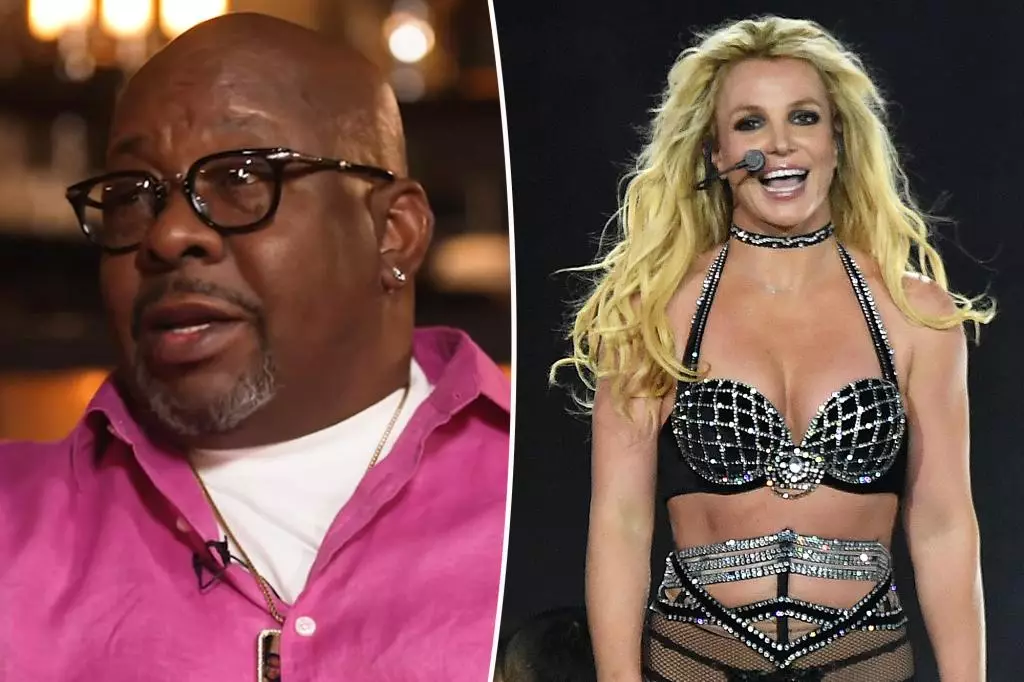In an unexpected revelation during a recent episode of Shannon Sharpe’s podcast “Club Shay Shay,” Bobby Brown expressed his discontent with Britney Spears’ cover of his hit song “My Prerogative.” Describing her rendition as a “butchering,” Brown’s candid critique has sparked a flurry of reactions from fans and listeners alike. At the age of 56, Brown admits that he approved the cover out of respect for Spears, a pop icon in her own right. His statements raise questions about artistic interpretation and the sometimes fraught relationship between original artists and those who cover their work.
Cleared with Conditions
In his discussion, Brown revealed an interesting dynamic: although he had “cleared” the song for Spears to cover, it was not without reservations. He seemed to anticipate a different outcome, suggesting that his excitement for the collaboration was misplaced. “I cleared it only because it was Britney Spears!” he exclaimed, hinting that he expected an awe-inspiring rendition. This expectation underscores a critical aspect of the music industry — the reverence and trepidation that original artists often feel when newer generations reinterpret their work. Brown’s sentiment suggests a lack of understanding that reinterpretation often serves the culture and brings a new wave of audiences to the original creation.
The Intersection of Legacy and Popularity
Interestingly, Brown’s criticisms highlight a generational divide in music appreciation. While Brown sees Spears’ version as a disservice to his original work, many fans have rallied in support of the pop princess. The discourse online has been vigorous, with audiences calling Brown’s comments out as desperate attempts for relevance. One social media user noted, “Bobby Brown, on the brink of being forgotten, brings up Britney Spears to stay relevant.” Such sentiments not only reflect the current popularity of Spears but also spotlight the fragile nature of an artist’s ongoing legacy. Many argue that Spears’ cover gave new life to “My Prerogative,” illustrating how artist reboots can rejuvenate classic tracks for modern audiences.
A Lesson in Artistic Ownership
The fallout from Brown’s comments serves as a potent reminder of the complexities involved in artistic copyright and ownership. In the music industry, withholding approval for a cover can be a protective measure, but such actions might also stifle creativity. Bobby Brown’s admission about perhaps needing to listen before he clears songs could be interpreted as a learning moment: how does one reconcile nostalgia with the evolution of a genre? The discourse raises an essential question about artistic ownership and the delicate balance between preserving an original work’s integrity while allowing for its evolution.
The Fan Backlash and Support
The backlash against Brown has been overwhelmingly supportive of Spears, with fans asserting that her version brings a fresh perspective that resonates with today’s audience. References to the production team’s differing backgrounds—Bloodshy & Avant versus Teddy Riley—have also added another layer of complexity, illustrating how different producers can lead to vastly different interpretations of the same song. It’s a portrait of a music landscape that thrives on reinterpretation, and the audience’s enjoyment may often outweigh an artist’s personal sentiments about their original work.
In a world filled with reinterpretations and remakes, Brown’s critique invites a deeper discussion about the value of music across generations. His comments will likely echo in music circles for quite some time, prompting both nostalgia and resentment as the debate over who truly owns a song rages on.

